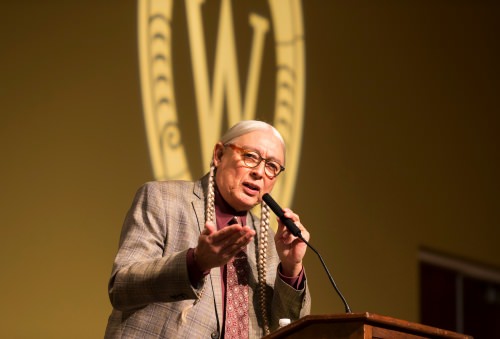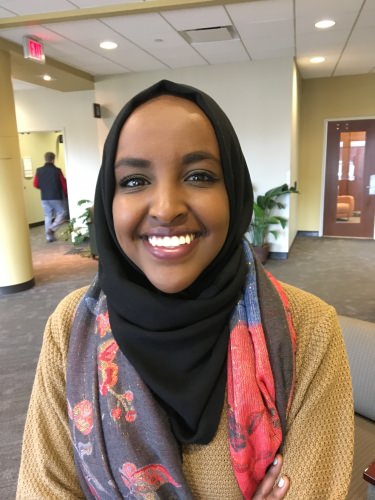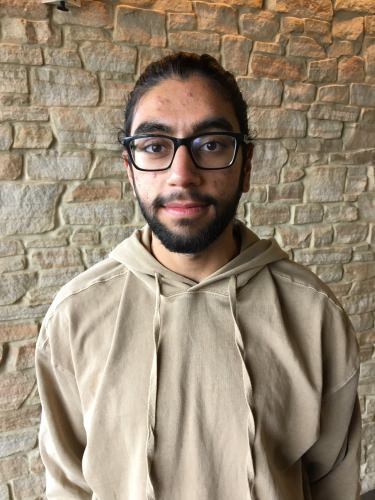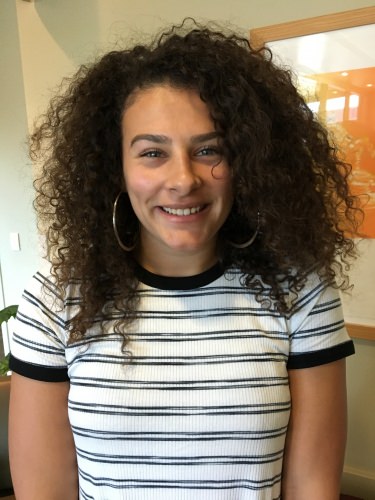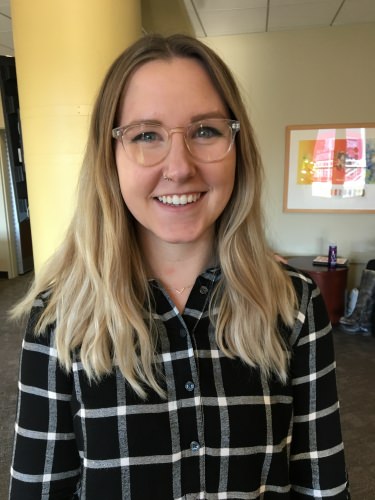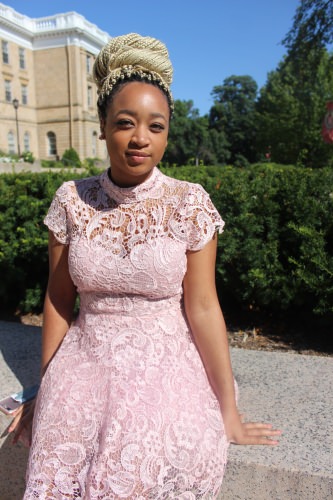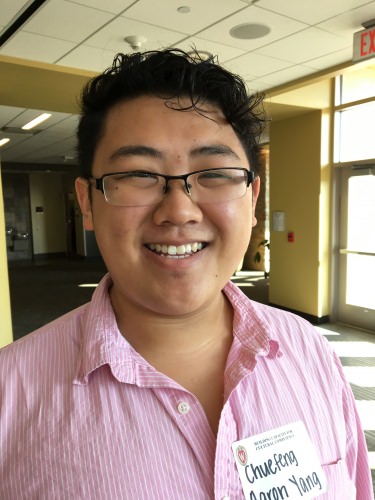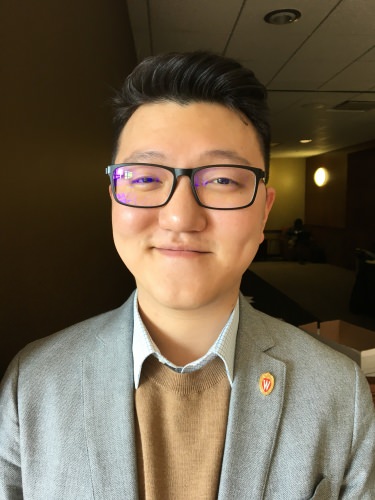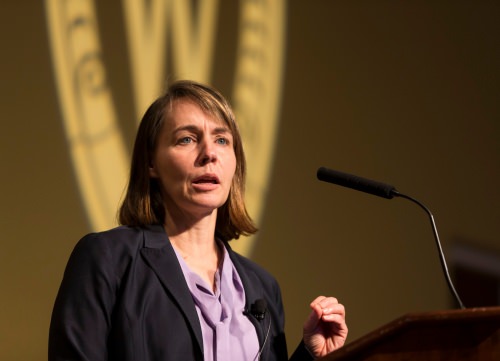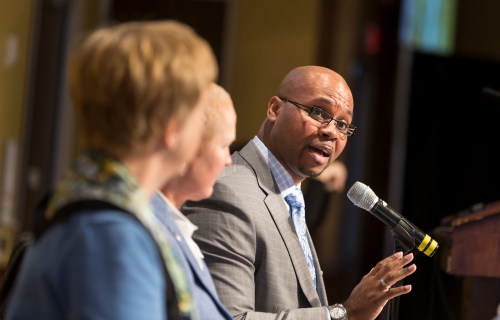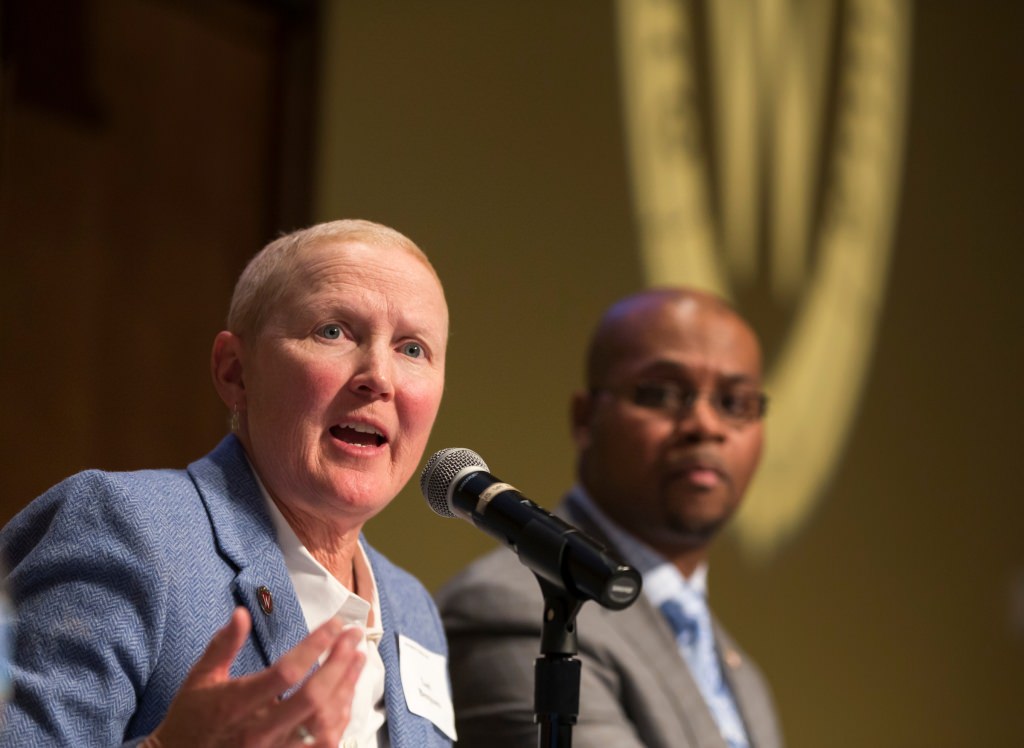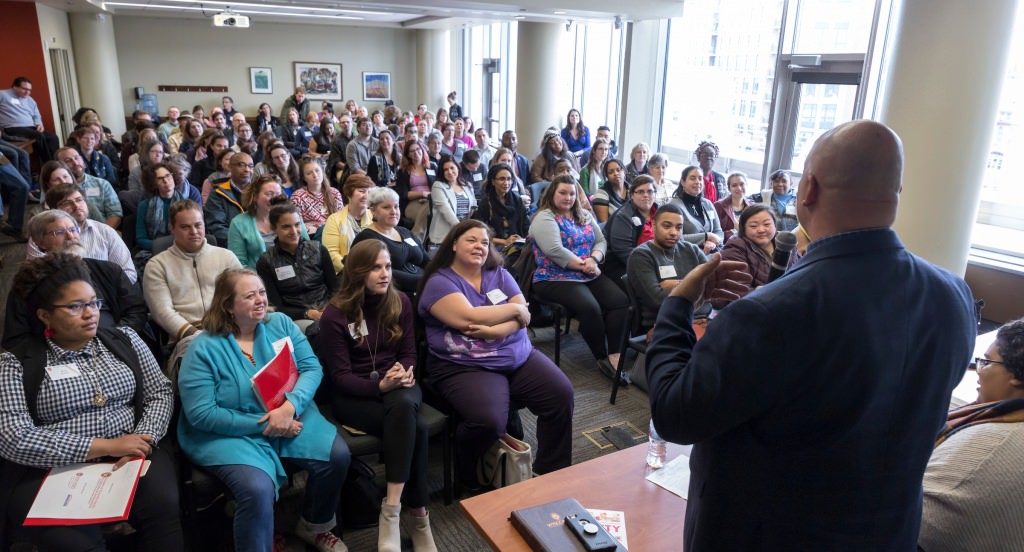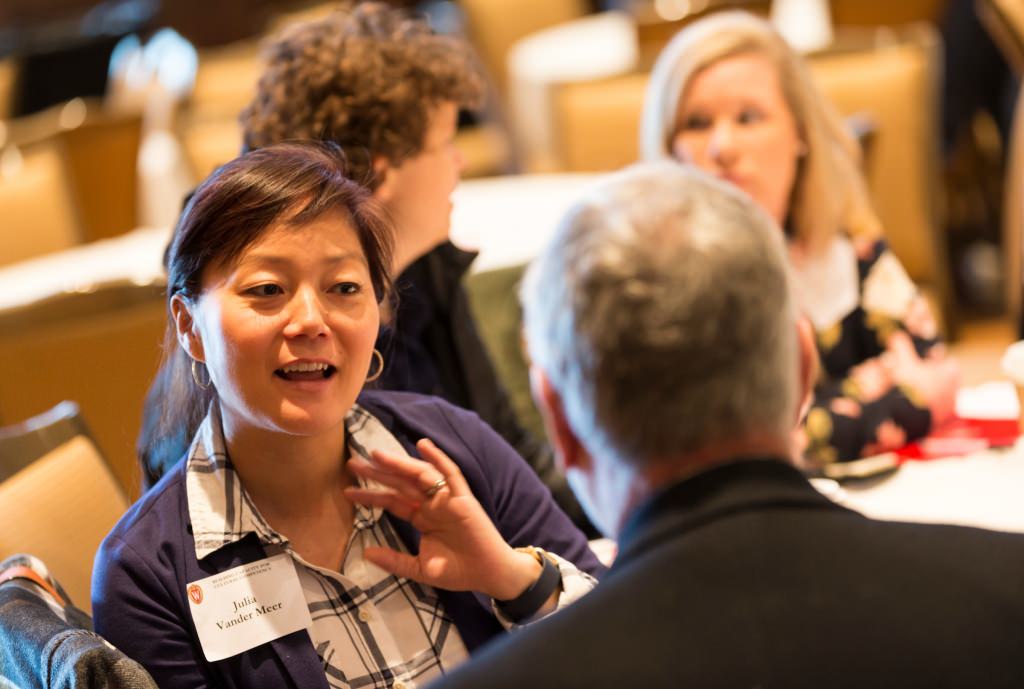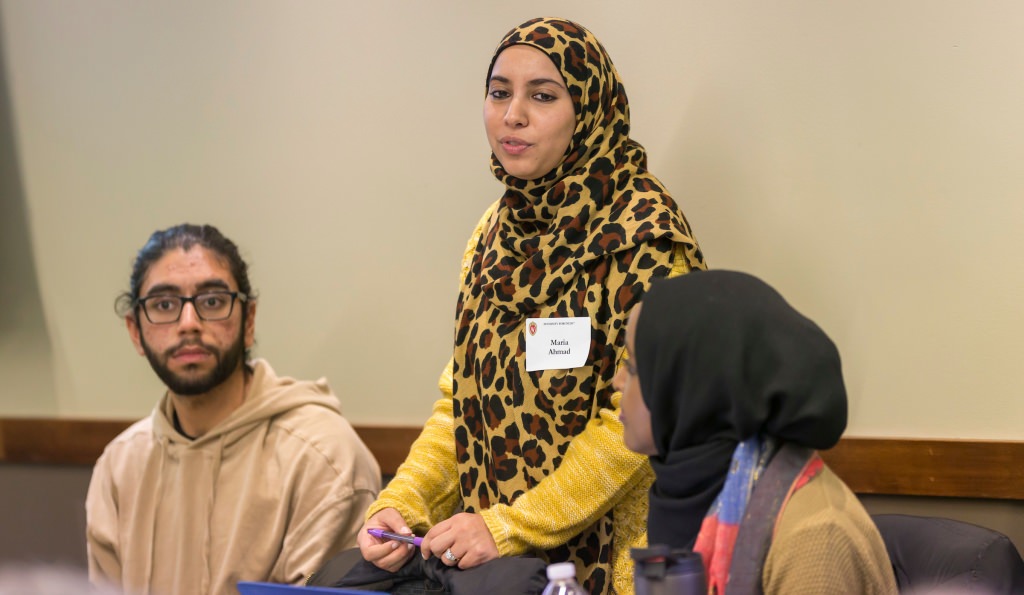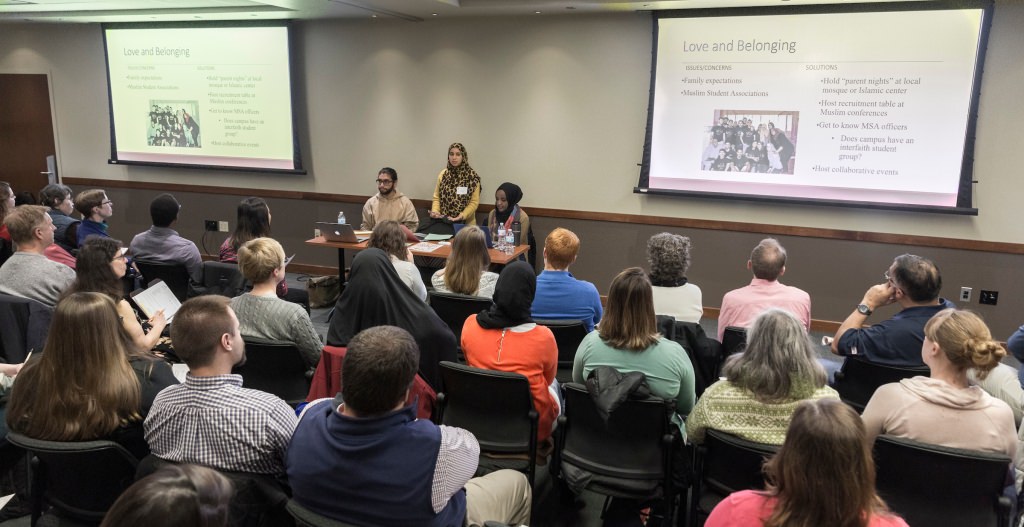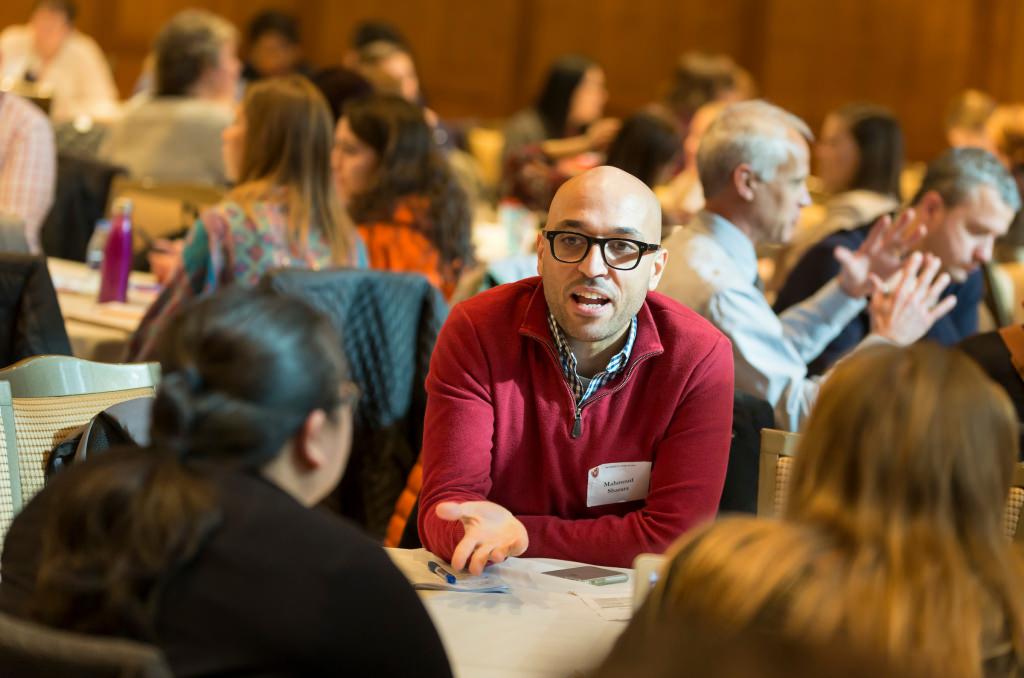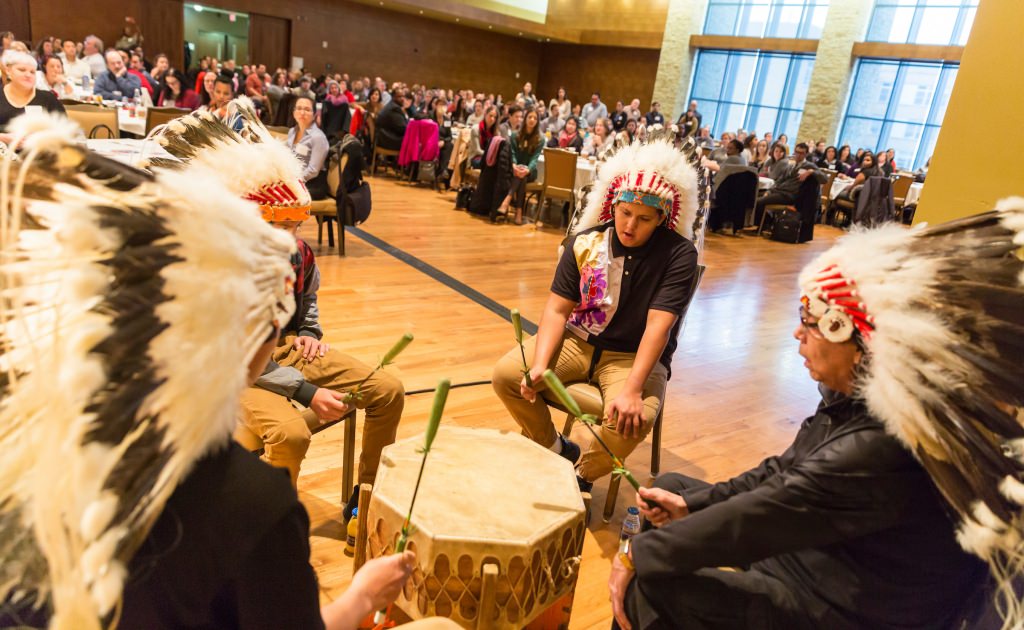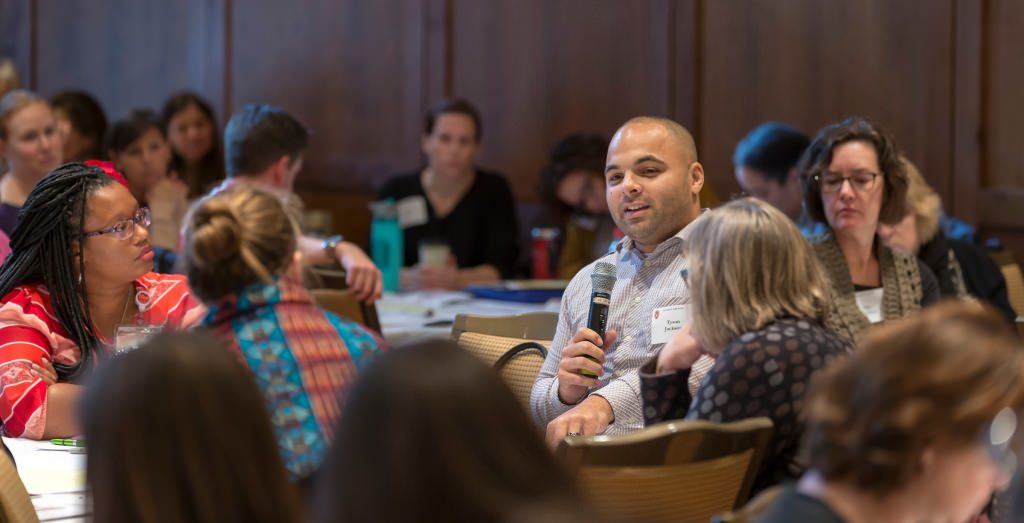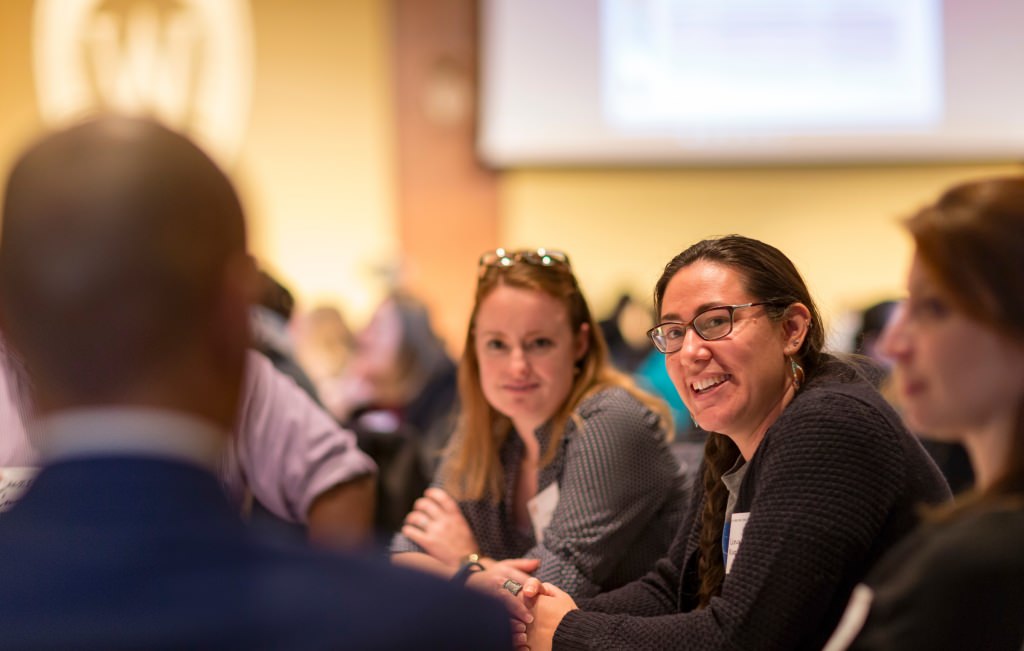At 2017 Diversity Forum, a wealth of student voices infuse discussions on campus climate
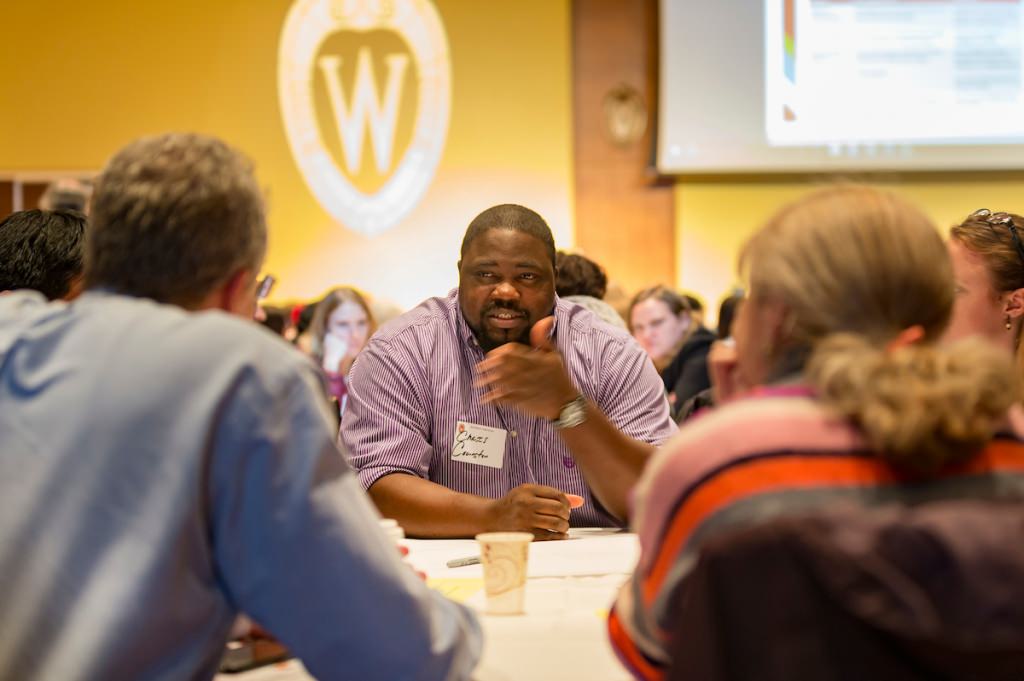
The two-day Diversity Forum on Nov. 7 and 8 proved popular, with about 650 people taking in all or part of the first day, and for the first time, a second day of workshops, which drew about 250 participants. Photo: Andy Manis
Speakers at this year’s Diversity Forum at UW–Madison dove into a wide array of issues, exploring from a multitude of perspectives how to make the campus more welcoming and inclusive.
Fittingly, students were at the forefront of many of the discussions, both as panelists and audience members.
“These are our lived experiences,” said one panelist, Chuefeng Yang, a freshman from Milwaukee who identifies as Hmong.
The two-day forum on Nov. 7 and 8 proved popular. About 650 people took in all or part of the first day, including some who watched keynote speaker Walter Echo-Hawk from an overflow room. This marked the first time the annual event offered a second day of workshops — a capacity crowd of 250 people participated in cultural competency training for mental health specialists, student services professionals and advisors.
The forum was presented by the Division of Diversity, Equity & Educational Achievement. Here’s a sample of the student voices that infused both days.
‘I felt I constantly had to prove myself ’
In high school, Naman Siad said, she thought of her Muslim faith as simply a personal religious choice. Arriving on campus a few years ago, she realized her faith had become politicized.
“Whatever I said in class, I felt like I was speaking on behalf of all Muslim people in the entire world, and that’s a very large burden to carry as a freshman,” said Siad, who earned a bachelor’s degree from UW–Madison and is now a second-year law student on campus.
She spoke during a panel titled “Supporting American Muslim Students in 2017.” Being able to defend one’s faith is a good skill, she said, but it can be draining. “Everyone that I interacted with, I felt like I constantly had to prove myself.”
Fellow panelist Omer Arain, a graduate student in international public affairs from Germantown, Wisconsin, stressed that Islam is not a monolithic faith and that its followers hold nuanced views. Both he and Siad said the Muslim Student Association has been immensely helpful in providing them with support and community, and Siad praised the Multicultural Student Center as “one of the spaces on campus where students of color feel at home.”
She said she has become better at allowing herself to identify as a Muslim in the ways that she wants, instead of taking on the expectations of others.
‘Space to kick-start some conversations’
College is a time for young people to question things and learn about themselves, and the “Our Wisconsin” inclusion program is laying the groundwork for that, junior Kaitlynne Roling told the audience at a session about the initiative, now in its second year.
“It provides space to kick-start some conversations (students) will be having throughout their college years,” said Roling, one of the program’s student facilitators.
“Our Wisconsin” is a three-hour workshop offered to all first-year students in University Housing. It aims to increase knowledge about cultural differences and promote community through structured dialogue, activities, and reflection. Each workshop is co-led by a trained student facilitator and a staff or faculty facilitator.
Another student facilitator, graduate student Katie Biester, said she likes that “Our Wisconsin” sends a strong message to freshmen as they arrive on campus that inclusion and equity are priorities at UW–Madison. But she cautioned that one workshop can accomplish only so much. Students must be encouraged to avail themselves of the many other opportunities for personal growth on campus, she said.
“I think we see this as the beginning of a longer journey,” she said.
‘I can do it’
It took time, but Asia Henderson said she’s developed an important skill that’s helped her thrive on campus: self-love.
“I constantly tell myself that I can do it. I will do it,” said Henderson, a senior from Milwaukee who is studying neurobiology and psychology and identifies as black. She said if she doesn’t feel accepted in a certain setting or finds resistance on campus, “I push back, and once you do that, nothing is going to stop you.”
Henderson was one of several students on a Day Two panel who shared how they navigate challenges on campus. The discussion followed the keynote address by Dr. Sarah Van Orman, who stressed that the work being done on campuses around issues of diversity and inclusion directly relates to student health. A positive campus climate can improve student health outcomes, which in turn can boost educational results such as retention and graduation rates, she said.
Chuefeng Yang said he was profoundly affected by an advisor and educator on campus who asked him, “When are you going to make this space yours?”
The statement led him to think about how he can make his own spaces here, instead of searching for existing spaces where he may or may not fit in, he said.
A mentor in the Posse Scholars program provided wise advice to Stanley Kang when he was an undergraduate, he said. The mentor helped identify “where was I getting lost in this university setting? What was overshadowing my perceived potential in this space?” said Kang, a graduate student in educational leadership and policy analysis who identifies as Korean-American. He is now a mentor himself in the program.
Dorcas Jansen, a doctoral student in counseling psychology from Dallas, encouraged other students to move past any stigma attached to asking for help, saying she has found the various mental health services on campus very beneficial.
“Develop some of these skills in understanding yourself and in understanding how to assert your needs,” she said. “Be an activist.”
‘Critically important to have diversity’
Hugh Roland said many of his fellow graduate students feel as he does: UW–Madison needs more faculty and students of color.
“As a white male, I have to sign up for this, because it affects the quality of my education,” said Roland, a doctoral student in environmental resources who works on diversity-related issues with the Teaching Assistants’ Association. “It really does relate to the quality of the academic discussion and critique that can occur in a class. It’s critically important to have that diversity.”
Roland was among audience members who spoke during a presentation on the results of the first-ever campuswide climate survey. According to the survey, a majority of students from nearly all backgrounds find UW–Madison to be safe, welcoming, respectful and a place where they belong. However, some members of historically underrepresented and disadvantaged groups were less likely to report a positive environment.
Roland asked administrators what will be done to increase the number of faculty and staff of color.
Patrick Sims, UW–Madison’s chief diversity officer, highlighted efforts such as the Cluster Hiring Initiative, an alternative to departmentally based hiring practices that he said he hopes will lead to a more diverse applicant pool. Dean of Students Lori Berquam drew applause when she brought the discussion back to the kind of campus climate that everyone helps create.
“It’s not just to get students of color or staff and faculty of color here, it’s how do we retain them, and that has to be part of what all of us do as well,” she said. “Challenge yourself — I’ll challenge myself — who’s in your social circle? Because in order for us to keep this institution strong, we have to retain our staff and faculty and students of color. That’s crucial, and that takes all of us.”

